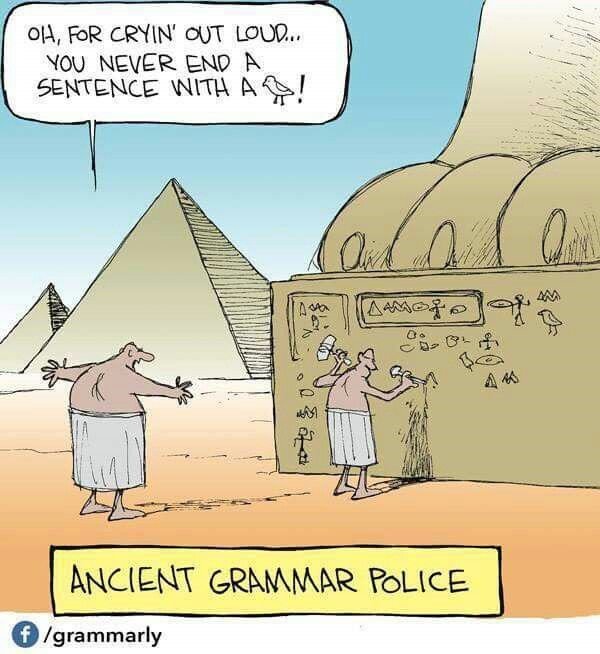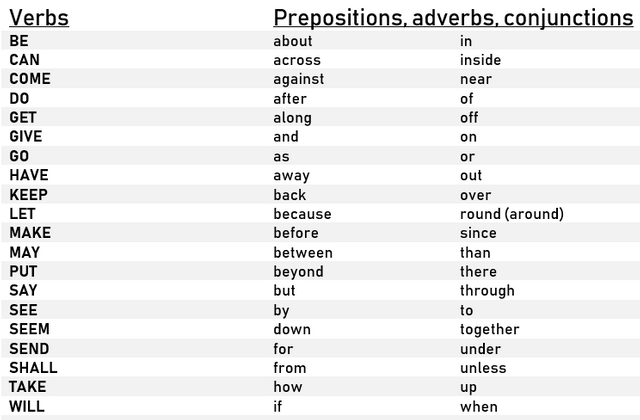Language suicide - the modern trend of English | Part 2
"Oh how easy" sums up the early impression of many foreign students of English, and they are right. Grammatically, English is simple, free from the rigid rules requiring Germans, Frenchmen, Spaniards and Russians to step carefully in their sentences; and its key words - little verbs, and prepositions that can also act as adverbs - in combination have marvelous power to fit almost any context. Its grammar and idiom, like the British Constitution, are established more by precedent and example than by formality and injunction.

Indeed, at home before the First World War, injuctions were hardly needed, for all educated Englishmen had laboured and been disciplined in at least one foreign field of grammar, Latin; and feeling for the natural rhythms, idioms and grammar of their own language had been instilled into them since early childhood by good conversation or elder imbued with good English literature; and those among the less well-educated classes of Englishmen who wished to rise in the world improved their language by copying that of the educated class - and even the uneducated, since 1611 when the Authorised Version of the Bible was heard regularly in churches over the lengths and breadth of England, had the sound of superb English as a touchstone for their speech and understanding.
But that was before the World Wars and electronic broadcasting. Nowadays, electronically, a relatively few brazen illiterates are magnified and proliferated monstrous models to millions who have neither the education nor the ear to withstand a perpetual battery of bad taste; and proper leaders who would easily have ridiculed such vulgarians from the gates of influence are dead or too few.
I take it for granted that an intelligent person intending to learn English seriously does not wish to load himself with an inferior English just to be one with the huge class of English-speakers who are stuck with it through bad schooling and lack of good reading in their homes. Your good taste makes you eager to know and to use good English, and from the beginning your path to that goal should be clear.
If you would reach the goal BEWARE OF THE ENGLISH VOCABULARY. It is a deep quagmire to foreigners and badly educated English-speakers alike. Its danger lies in its combination of simplicity and richness.
The simplicity and the richness derive from two distinct sources. English is really a mixture of two languages. Its vocabulary was brought down by two mighty, equal-sized rivers, the Germanic and the Latinate. From the Germanic come words that every person born to English is at home with: HEAVEN, HELL, LOVE, HATE, DEATH, FATHER, MOTHER, WATER, OX, DOG, WORD he never needs to look up in a dictionary - nor the words in the following two lists of Germanic words. These few Germanic words that are the main verbs, prepositions, adverbs and conjunctions are the core of the English language.

Those twenty verbs when combined with fitting Germanic prepositions or adverbs have kaleidoscopic ability to express a huge variety of thoughts. For example, see from the diagram how the verb GIVE, supported by eight words from the second list, can, like a versatile ballet dancer, hold many different different positions gracefully; and that it can always connect with the Latinate zone of the language, the words of which, as you can see from a good dictionary, are generally described through Germanic verb and preposition, or Germanic verb and adverb.
You will see from the diagram that the Latinate part of English is made up of longer words. Generally these words are not supple or homely like the Germanic ones, but grave and exact. They bring in fine shades of meaning with stately sound and rhythm.
It is the apt balance of Germanic and Latinate by good speakers and writers over hundreds of years that has made English vigorous, exact and flexible. Here are three sentences through the GIVE DOWN channel of the diagram:
- The pompous ass GIVES DOWN (PONTIFICATES) his opinion each time as if it were the Cullinan diamond.
- The King is pleased to GIVE DOWN (DEPUTE) to you his authority over the province.
- O Poseidon, to save ourselves from the fury of the sea we miserable sailors GIVE DOWN (JETTISON) both cargo and private possessions to your deep.
Part 3 coming soon!
If you've missed Part 1 of my Language suicide sequel, please follow this link
Resources and extra reading:
Ancient literature | Literary criticism | Greek cultural history | Rise and fall of the English language | Why reading in English isn't enough | History of the English language | How English evolved |



Congratulations @ghostgtr! You have received a personal award!
Click on the badge to view your Board of Honor.
Do not miss the last post from @steemitboard!
Participate in the SteemitBoard World Cup Contest!
Collect World Cup badges and win free SBD
Support the Gold Sponsors of the contest: @good-karma and @lukestokes